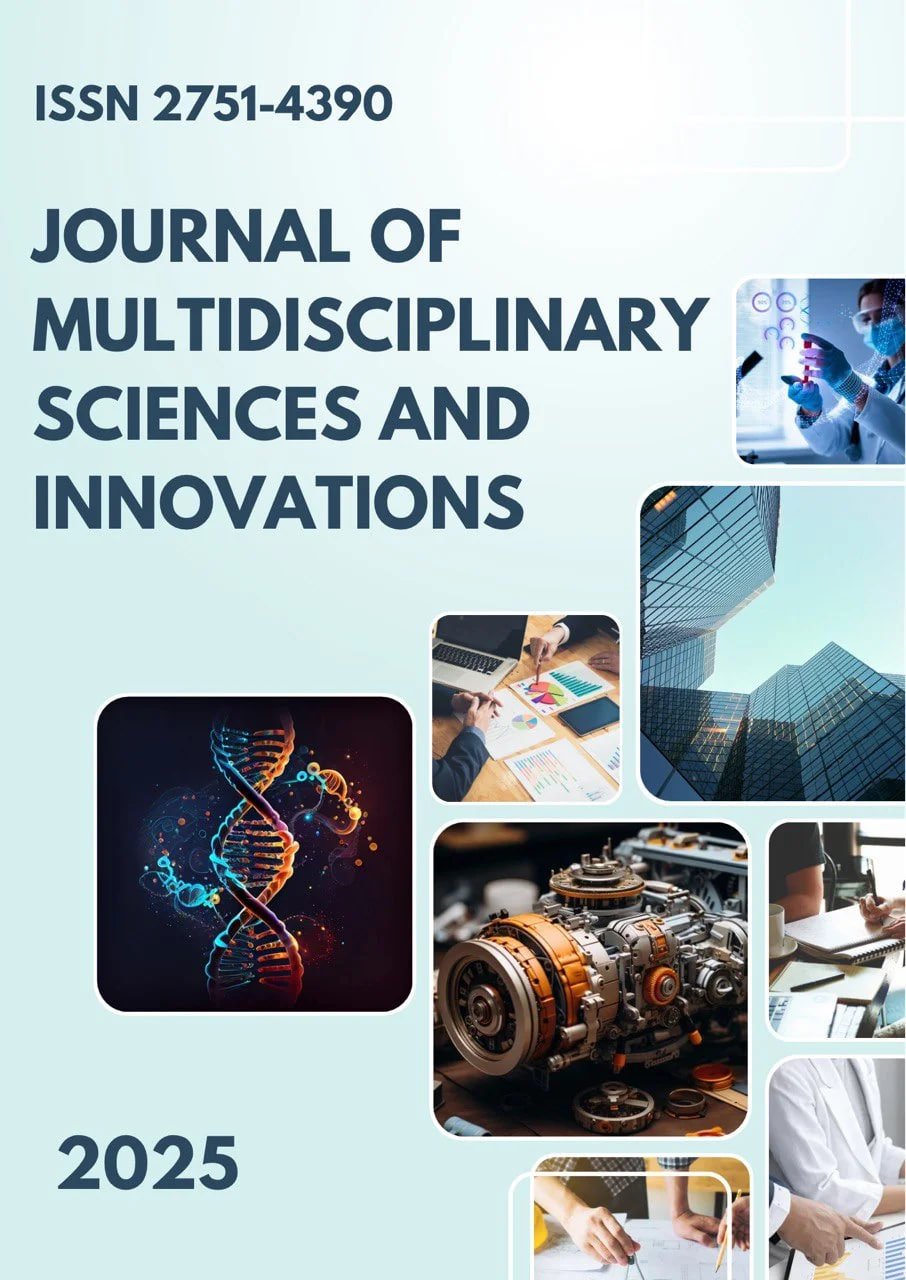THE PSYCHOLOGICAL AND PEDAGOGICAL CONDITIONS FOR IMPROVING EDUCATIONAL EFFECTIVENESS BASED ON ARTIFICIAL INTELLIGENCE
Main Article Content
Abstract
This article is devoted to the study of the psychological and pedagogical conditions for enhancing the effectiveness of education through the use of artificial intelligence (AI). In the modern era of digital transformation, AI technologies are increasingly being integrated into the educational system to improve teaching quality, personalize learning, and develop learners’ cognitive, creative, and communicative abilities. The research reveals that AI not only optimizes the learning process but also supports the psychological and emotional development of students by providing individual feedback, motivation, and adaptive learning experiences.
From a psychological point of view, AI-assisted learning helps students develop critical thinking, problem-solving skills, and emotional stability. Intelligent learning platforms and AI tutors are capable of analyzing students’ performance in real time, identifying their strengths and weaknesses, and recommending suitable learning strategies. This, in turn, increases students’ self-confidence, engagement, and intrinsic motivation to learn.
Downloads
Article Details
Section

This work is licensed under a Creative Commons Attribution 4.0 International License.
Authors retain the copyright of their manuscripts, and all Open Access articles are disseminated under the terms of the Creative Commons Attribution License 4.0 (CC-BY), which licenses unrestricted use, distribution, and reproduction in any medium, provided that the original work is appropriately cited. The use of general descriptive names, trade names, trademarks, and so forth in this publication, even if not specifically identified, does not imply that these names are not protected by the relevant laws and regulations.
How to Cite
References
1.Anderson, J. R. (2009). Cognitive psychology and its implications (7th ed.). Worth Publishers.
2.Baker, T., & Smith, L. (2019). Educ-AI-tion rebooted? Exploring the future of artificial intelligence in schools and colleges. Nesta.
3.Holmes, W., Bialik, M., & Fadel, C. (2019). Artificial intelligence in education: Promises and implications for teaching and learning. Center for Curriculum Redesign.
4.Kurbanova, M. (2020). Psychological and pedagogical conditions for introducing artificial intelligence technologies into the educational process. Tashkent: Innovation Publishing.
5.Luckin, R., Holmes, W., Griffiths, M., & Forcier, L. B. (2016). Intelligence unleashed: An argument for AI in education. Pearson Education.
6.Nazarov, A. (2021). Digital pedagogy: Opportunities for using artificial intelligence in education. Samarkand: SamSU Publishing.

